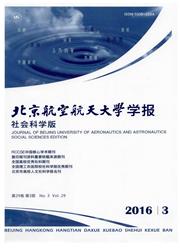

 中文摘要:
中文摘要:
在文献综述的基础上,对影响石油价格的需求、供给和投机的三方面因素进行描述性分析,分别建立不考虑经济周期的全样本VAR模型和考虑经济周期的子样本VAR模型。通过脉冲响应图和方差分解结果的比较分析,验证基于石油价格特点和经济环境及理论提出的三个观点:石油价格是基于预期的;整体来讲,需求对石油价格影响显著,供给和投机因素对石油价格影响较弱;石油价格影响因素在不同经济周期下的影响效果和相对重要性均不同。研究结论有助于了解石油价格的波动规律,并为中国制定石油政策提供依据。
 英文摘要:
英文摘要:
Based on previous papers,this article analyzes the three influencing factors of oil price,including demand,supply and speculation,and constructs whole-sample VAR model without consideration of business cycles and sub-sample VAR models with the consideration of business cycles.The comparison on the result of impulse response and variance decomposition verifies three opinions proposed according to the character of oil price and economic theory: oil price was based on expectancy;oil demand was leading influencing factors,while the influence of oil supply and speculation was little during the whole period;the influencing effect and relative importance of the three factors were different under different business cycles.The result helps to understand the pattern of fluctuation of oil price,and sheds light on the oil policy of China.
 同期刊论文项目
同期刊论文项目
 同项目期刊论文
同项目期刊论文
 Using discriminant analysis to assess polycyclic aromatic hydrocarbons contamination in Yongding New
Using discriminant analysis to assess polycyclic aromatic hydrocarbons contamination in Yongding New 期刊信息
期刊信息
